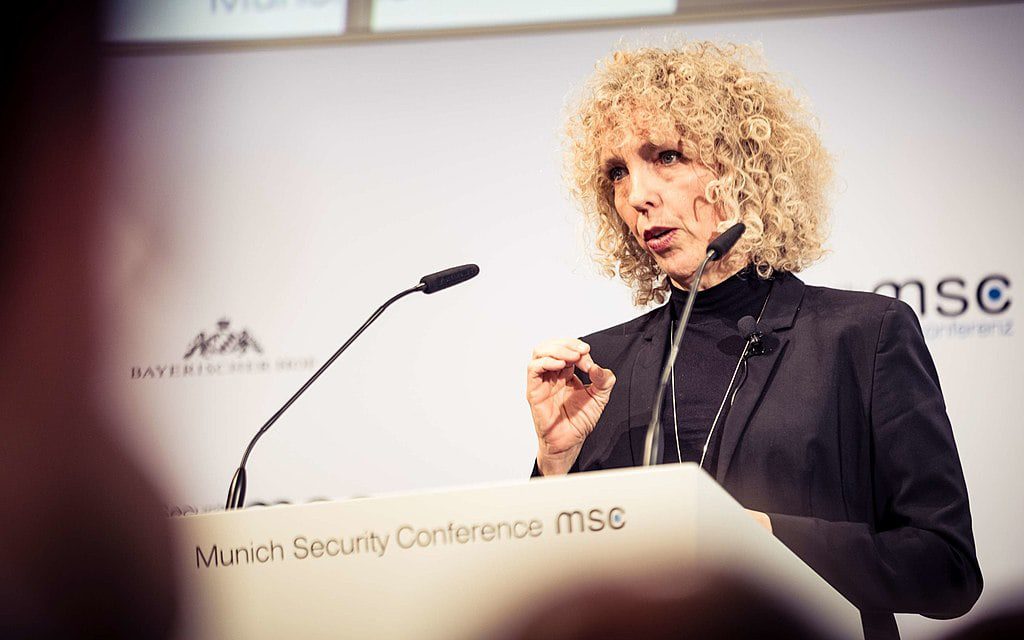
The German Foreign Minister and co-head of the Green party Annalena Baerbock appointed Jennifer Morgan, head of Greenpeace International, as the new special envoy for international climate policy. Morgan’s duties will include representing Germany at international climate conferences and curbing climate change on a global scale.
Morgan expressed feeling “honored by the trust” and looks forward to her new tasks with “joy and determination.” Meanwhile, Annalena Baerbock, who said she knew Morgan from previous meetings at numerous international climate events, considers the envoy a “dream appointment.”
Germany’s new government had moved the portfolio of international climate policy from the Environmental Ministry to the Foreign Ministry—a clear sign of Germany’s ambition to export its climate policies onto a global stage.
Jennifer Morgan’s contribution to this plan can not be underestimated. The U.S. citizen stressed the need for “unprecedented international cooperation,” a task she feels up to, through her work at various NGOs.
The appointment of Morgan as climate envoy marks only the beginning of Baerbock’s push to incorporate the climate activist into the work of the German government. At a second stage, Morgan is scheduled to become state secretary at the foreign office. But before that can happen, Morgan, who graduated from Indiana University with a bachelor’s degree in political science and German studies, needs to acquire German citizenship first.
After spending a year in the 1990s working for the German environment ministry as a Bosch fellow, Morgan dedicated her time to several NGOs, among others the World Wildlife Fund, the Climate Action Network, the World Resources Institute, and Greenpeace International, before being called upon by the current German government.
Some have voiced criticism of Morgan’s appointment. Torsten Frei of the Christian Democratic Party (CDU) accused the Green Party of lobbying to a degree that “could earn them a place in the Guiness Book of Records.” He called the procedure a “highly idiosyncratic process and an example of Green double standards.” Stephan Brandner of the Alternative für Deutschland (AfD) argued that a “U.S. citizen, who only receives German citizenship so she can be paid by German taxes, will never act politically for the German people.” For Brandner, Morgan remains “a lobbyist, that shall now be fed with our tax money.” According to Spiegel, the periodical that first reported the appointment of Morgan, the climate activist will receive the salary of a public servant (level B6), which amounts to €10,289 a month, as well as another €4,500 to cover the difference between her current position and the anticipated one of secretary of state (level B11).
The anti-corruption organization Transparency International, however, considers the appointment “unproblematic.” Hartmut Bäuer, head of Transparency International in Germany explained this assessment to the corporate news network Redaktionsnetzwerk Deutschland by pointing out that “the goal is to advance the protection of the climate, and for that experts are needed.” He expanded that this decision wasn’t about financial advantages for Greenpeace, but about “idealistic concerns.” For Bäuer, this marks “the difference from other associations, in which economical lobbyism is at the forefront.” He did add, though, that Morgan shouldn’t enforce “Greenpeace-politics,” but instead “bring her professional knowledge to the table.” She had to understand, “that she is being watched.”
Bäuer, however, didn’t define the exact difference between her work as a lobbyist and her professional knowledge. Neither did he define the nature of “idealistic concerns” in comparison to “economical lobbyism,” nor did he expand on what would constitute an abuse of her position and what potential consequences such an abuse of her position would have.
Political commentator Josef Kraus warned in Tichys Einblick that this appointment was an act of nepotism and a sign of society moving in the direction of becoming a soviet republic, in which activists of NGOs and seeming ‘experts’ take over more and more sovereign tasks. The numbers indicate a continuous growth of an already bloated bureaucracy. When the new German government took office in December, a total of 176 new civil servant positions were created, many of which have been handed directly to climate activists who have been placed in a variety of new climate related positions in a variety of ministries. Already in January, the government announced its plan to create another 148 positions. The number of federal employees in Germany rose from 17,080 in 2010 to 28,547 at the end of 2021.
